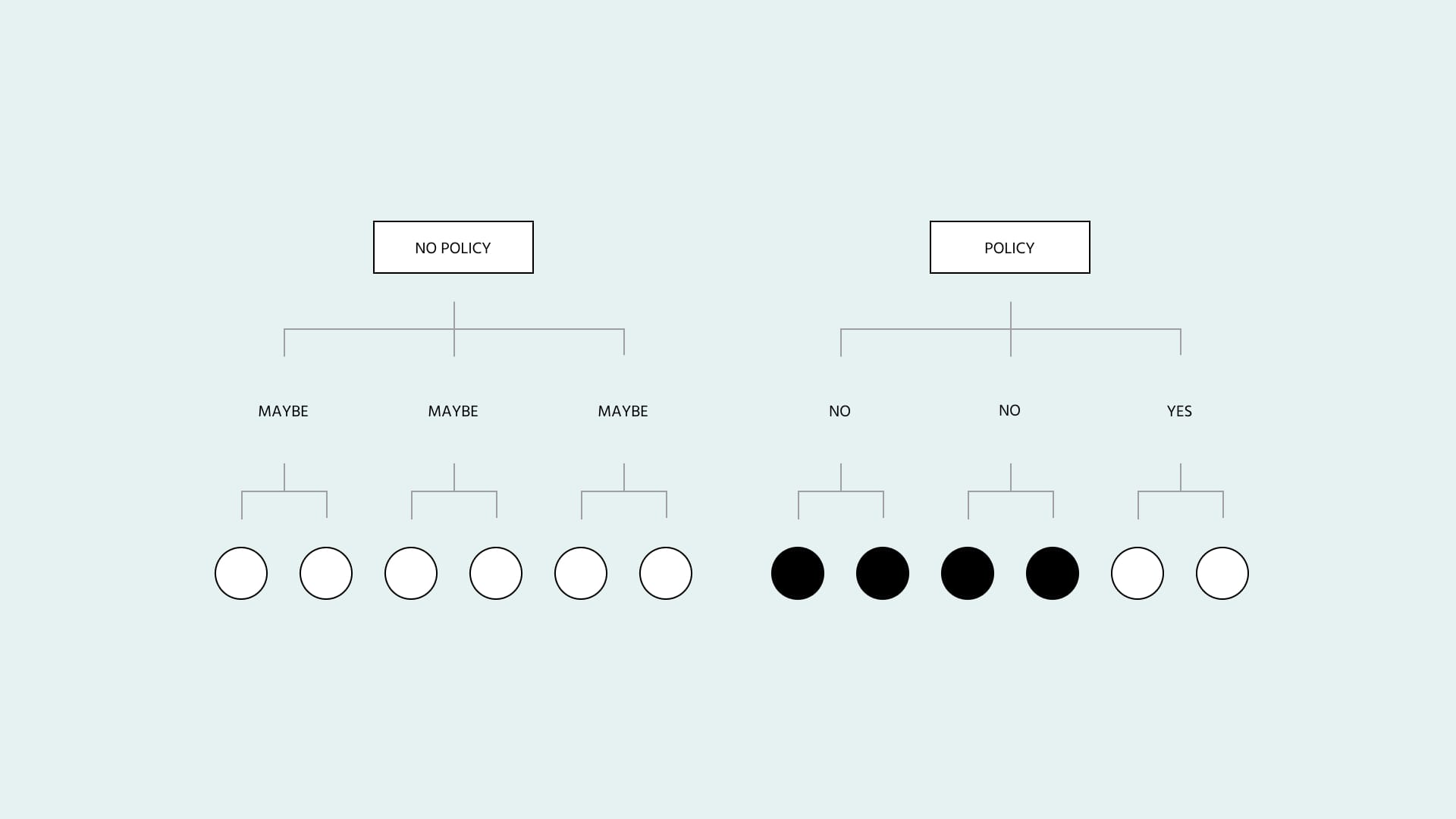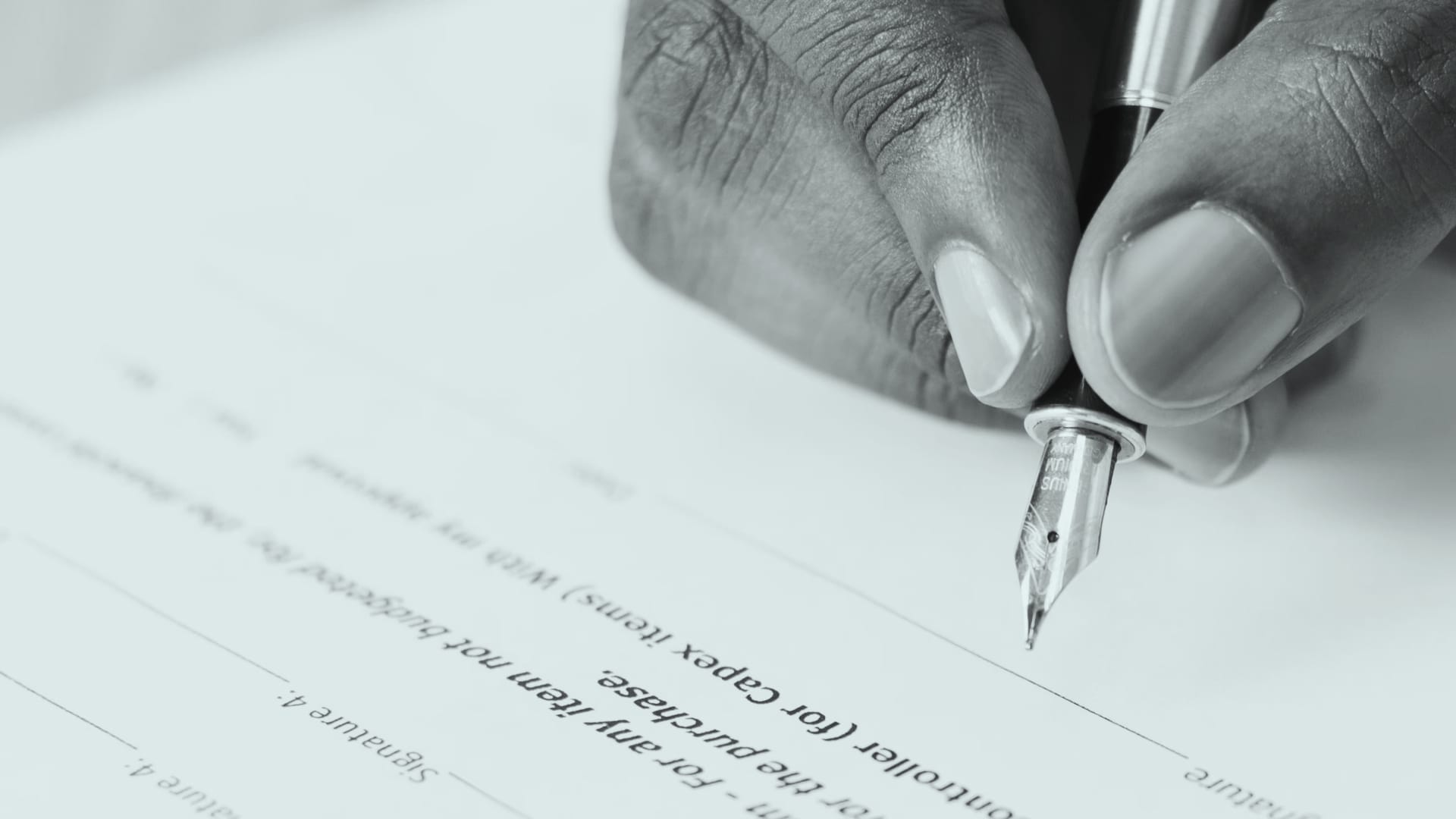Listen to this article:
I have some personal policies:
- I don't interact with anonymous Twitter accounts.
- I never say "yes" to a commitment when first asked.
- I don't check my phone until after breakfast.
It's not about being rigid. It's not about being legalistic. It's about minimizing decisions.
The power of personal policies is that they relieve you of exerting excess energy in making small choices. Personal policies minimize decision fatigue.

Every time you have to make a choice, you drain your willpower reserves. But by having a few personal policies you can slice through swaths of decisions with little effort. It saves you from the energy-depleting hand wringing that often accompanies even small choices.
When I wake up and see my phone on the charger, I might be tempted to grab it and "check something real quick" (translation: mindlessly scroll social media for 45 minutes). Then I might have a little argument with myself about how that's a bad idea and I should read my Bible first, but I'd eventually convince myself it's okay to check the phone first because it'll only take a second (even though I know that's not true). But that whole inner monologue can be skipped if I simply have a clear personal policy.
Not picking up my phone in the morning is not a decision I have to make in the moment because it's a policy I've set in advance.
Making Better Choices in Advance
We've all seen how physical fatigue can diminish one's capacity for physical exertion. It's why even world-class athletes make silly mistakes in double-overtime. Their tank has run dry. In the same way, decision fatigue can lead to poor decision-making. When we exhaust our willpower reserves, we become more susceptible to poor choices.
In fact, our decision fatigue can actually hurt other people. In one classic study researchers examined the decisions of US judges in over 1,000 parole hearings. They noticed a pattern: The most influential factor in whether someone was granted parole or not wasn't ethnicity, background, nature of the crime, or sentence. It was at what time their case was heard.
"Prisoners who appeared early in the morning received parole about 70 percent of the time, while those who appeared late in the day were paroled less than 10 percent of the time."
The New York Times
By the end of the day, the judges were suffering from decision fatigue. And that led to real-life consequences.

Even if our little decisions only affect us, wisdom calls for us to reserve our decision-making powers for the most important choices of the day and not waste our energy on trivia. And one way to limit the number of decisions you need to make is by setting personal policies for yourself.
Other Examples of Personal Policies:
- No watching R-rated movies
- No eating after 8 pm
- Never resist the urge to pray
- No dessert on days I didn't exercise
A couple of tricks when it comes to personal policies:
- Keep them simple
- Keep them personal
The more complex your policy, the more actually using it becomes an energy-depleting decision itself. And we should clearly understand that our policies are for us, they are not law for others. Use your personal policy to make your own life simpler, not as a gavel to judge others. Matters of conscience should never be sources of division.
What about you, do you have any personal policies?
Ready to take the next step with your productivity?
- Get the Book → Grab a copy of Redeeming Productivity: Getting More Done for the Glory of God
- Join the Academy → Get access to all of our courses, workshops, private community, planner, and more
- Use the Planner → The all-in-one productivity system designed for Christians






